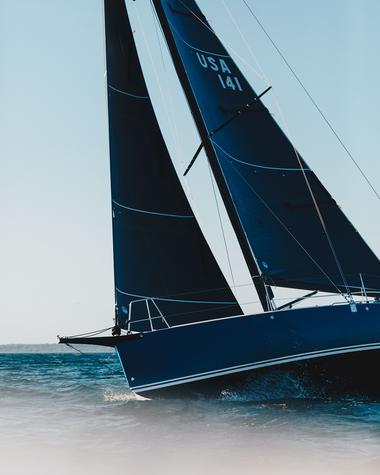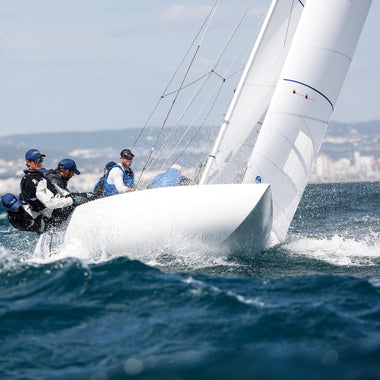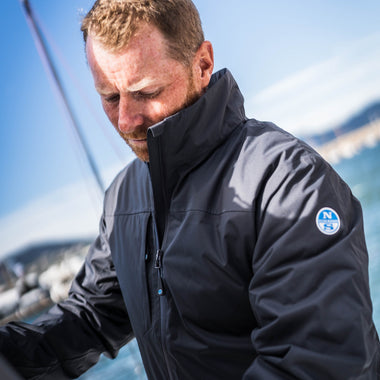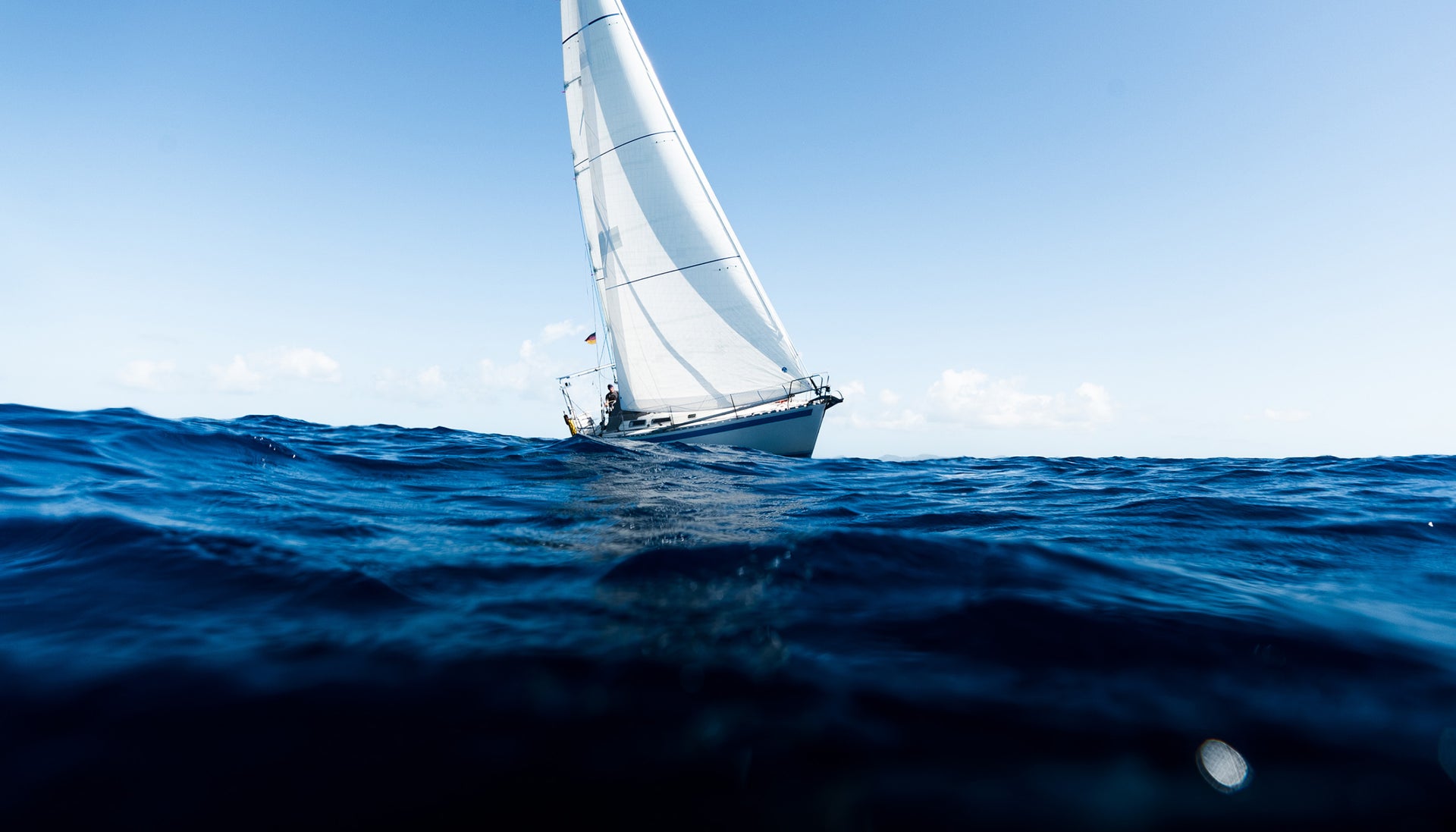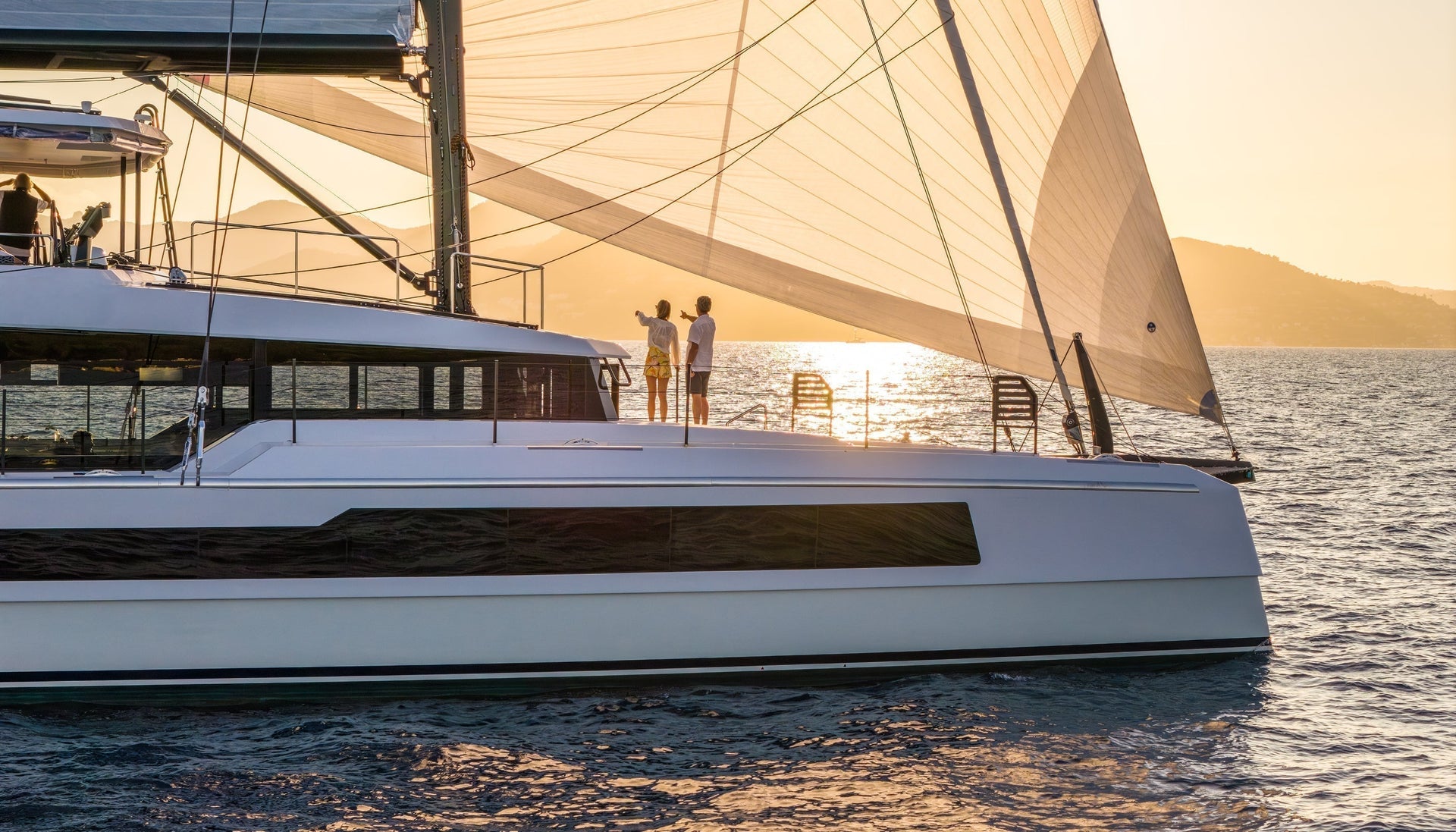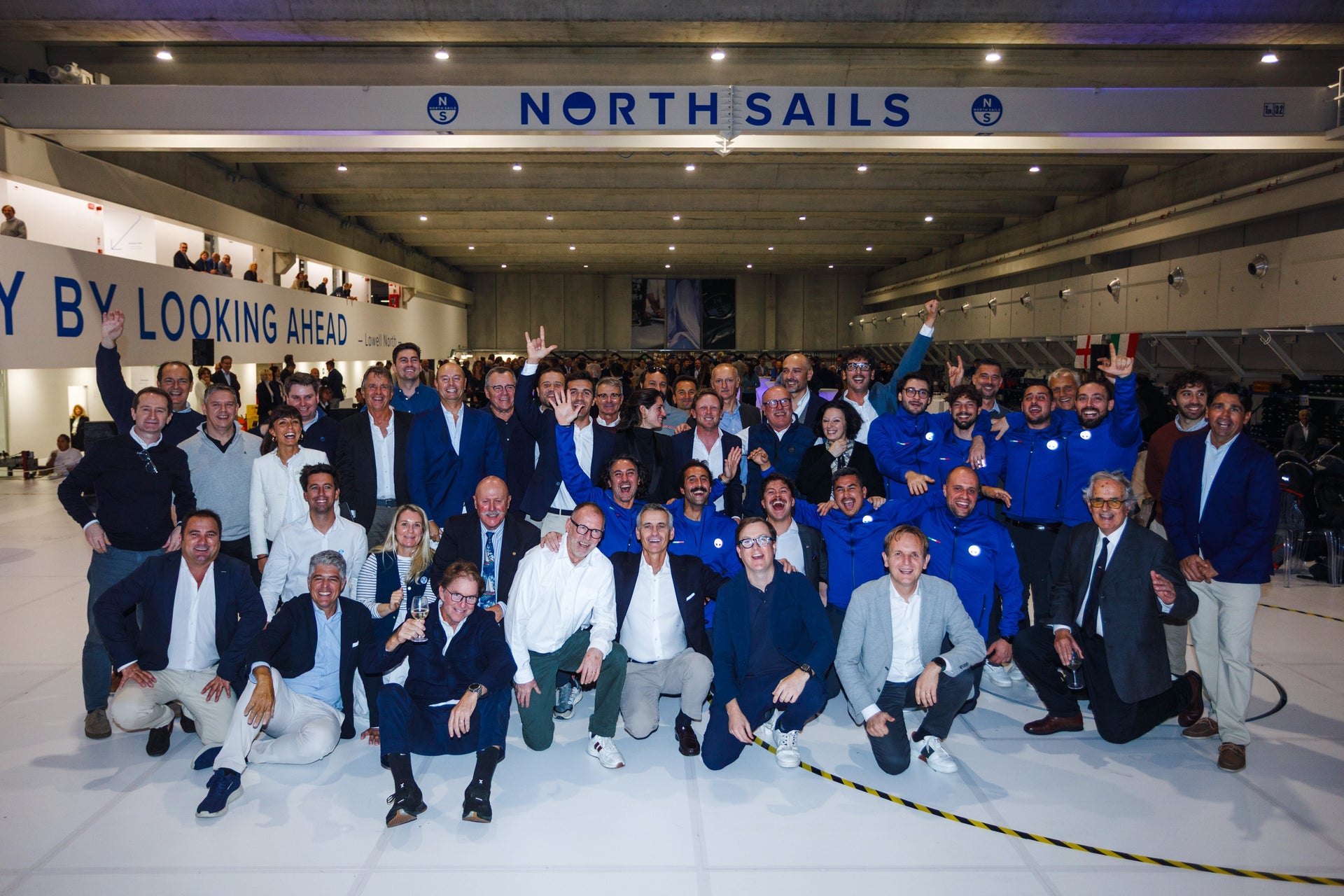2019 CICSA REGATTA SERIES
2019 CICSA REGATTA SERIES
Fleet Racing National Championship
 The weather in Kingston is a brisk 13 degrees Celsius and the water isn’t much warmer. Let's be honest, the thought of being in a wet dinghy during a Canadian fall isn’t how most would want to spend their weekend; but if it means racing, and competing in a championship event - it's the ideal two days for these sailors! Intercollegiate teams from across Canada descended on RMC campus on October 26th to wrap up the 2019 season in the Canadian Intercollegiate Sailing Association (CICSA) Fleet Racing National Championships.
The Royal Military College of Canada Sailing Team were excellent hosts throughout this event. During the morning of the first day as teams registered, rigged their boats, and caught up with fellow competitors on their semesters. RMC’s team captain and president Ryan Wells was busy ensuring everyone had their questions answered and that day one was off to a smooth start.
The weather in Kingston is a brisk 13 degrees Celsius and the water isn’t much warmer. Let's be honest, the thought of being in a wet dinghy during a Canadian fall isn’t how most would want to spend their weekend; but if it means racing, and competing in a championship event - it's the ideal two days for these sailors! Intercollegiate teams from across Canada descended on RMC campus on October 26th to wrap up the 2019 season in the Canadian Intercollegiate Sailing Association (CICSA) Fleet Racing National Championships.
The Royal Military College of Canada Sailing Team were excellent hosts throughout this event. During the morning of the first day as teams registered, rigged their boats, and caught up with fellow competitors on their semesters. RMC’s team captain and president Ryan Wells was busy ensuring everyone had their questions answered and that day one was off to a smooth start.
BR: RMC always goes above and beyond when hosting these races. What did you like about hosting the National Championship?
RW: It was an honour for RMC to be able to host Fleet Racing Nationals again this year. We really enjoy being able to have such a large fleet of boats on the starting line, with crews from all over Canada. It’s been awesome to see CICSA grow over my time at RMC, and seeing more teams participating in nationals every year has been fantastic. Particularly, it’s incredible that UBC and Dalhousie were both able to make the trip this year. We think (although we may be slightly biased) that Kingston is the perfect venue for an event like this, with a strong sailing culture and dynamic wind conditions that always make for interesting sailing. This event was business as usual in that regard.BR: How did you think the racing went this weekend?
The two days of racing couldn’t have been more different. Day one found the wind blowing no more than 6 knots at a time, and crews had to work hard to find the puffs filtering down the course, and use their weight and tactics to their advantage. Unfortunately the day had to end early due to the wind dying completely, with the plan to pick up the next day with where we left off. Day two was a completely different animal. Although the day started out with relatively light winds, allowing the group to get a couple of relatively benign races in, by noon the wind had picked up to 15 gusting 25 knots. The A fleet was able to get in a set of races after lunch, but by the time that B fleet had reached the course for their set, the wind had picked up to blowing around a steady 20 knots, with waves reaching almost 4 feet high in some places. They were able to get in their first race before the crews, and the boats, began to succumb to the challenging conditions. The races were called for the day, and eventually all the boats made it back safely to shore with only two bent masts and a couple of broken forestays to show for it.
BR: Obviously, the new sight on the racing scene for Fleet Nationals this year is having North Sails as a supporting partner. What are your thoughts on having a sponsor at this event?
RW: Having North Sails support this event was a huge step in showing how serious CICSA and all the teams in it are about building up the popularity and legitimacy of intercollegiate sailing in Canada. Of course, we aren’t as big as similar conferences in the United States, but we are growing. Having the support of a major player in the sailing industry helps show that progress. Every year there are eight races in the Canadian Regatta Series with many teams competing both in the regattas in Canada and in the U.S. under ICSA. It’s been a busy season with most of the larger teams like McGill sending their sailors to race and represent their school at up to 3 different races in one weekend.
BR: McGill should be super proud of the fight they brought to the regattas in Canada and the US. What are your thoughts on the season as a whole?
Ayden Watt: “It was a tight season of racing for McGill in CICSA, the team is proud to bring home the Fleet Race Nationals title for the fourth year in a row. Following an overall Canadian win in 2018, 2019 saw McGill bring in a strong new group of rookies, a new coach and a renewed drive to succeed. The whole team is especially thankful for our exceptional coaches, Stephen Waldie and Nicolas Tosi, and their guidance throughout the season. While this year didn't usher in the results the team was hoping for, McGill is proud of the work that got put in and is looking forward to strong Canadian competition in the coming season. This season definitely saw a lot of tight races, with fierce rivalry between McGill and Queen’s. Like McGill, the Gaels have a large team of seasoned racers competing both locally and across the border. The Queen’s Sailing Team has always been a dominant force on the water, consistently finishing regattas on the podium. Queen’s flexed their racing tact during this season to make a stellar come back.
Queen’s Sail Team must ecstatic with the incredible pace they’ve had throughout the season. What are some notable points of the 2019 season?
Scott Gittens: The past season for the Gaels was very successful. Most notably the team was able to bring back the CICSA League Championship making us the best ranked team in Canada. This championship included regaining the Team Racing National Championship. Despite a strong start to our season in the U.S, the Gaels unfortunately had to withdraw from one of the final qualifiers due to a larger team focus on winning the Canadian Championship. The Gaels had a strong finish to the season and will be looking to come back strong again next year to continue their dominant performance in Canada and improve upon their finish in the U.S League. The Gaels would like to extend thanks to their coaches Rachel Harris and Daniel Sheedy for their hard work and dedication in helping them achieve this year's accomplishments. While the majority of the teams that compete every year are based in the Central and Eastern region of Canada, the sailing team of University of British Columbia compete and practice ¾ of the year, and make the ~4600km journey from Vancouver, BC to Kingston, ON to compete at this race every year.
While the majority of the teams that compete every year are based in the Central and Eastern region of Canada, the sailing team of University of British Columbia compete and practice ¾ of the year, and make the ~4600km journey from Vancouver, BC to Kingston, ON to compete at this race every year.

BR: UBC’s commitment to racing out east is quite impressive. What is it like to travel this far to compete? It must mean something special to the team.
Richard Minielly: From the moment we step on the plane each year, excitement is building. The long travel does tire us out, but also gives the four or five sailors, lucky enough to be selected, a day of travel in to clear their heads, study old regatta notes, and mentally prepare for the regatta. As Canadians, it is always a pleasure to compete against the best that our own country has to offer, and the energy for this event always contains more excitement than similar U.S. regattas. While the costs are high and the distance far, that chance to be champions of our own nation is what keeps UBC making the journey each year. The 2019 Fleet Racing Nationals closed a season that came with a lot of great racing and memorable startline drama. 2019 marked new highs for the CICSA Regatta Series as a record total of 19 University Teams now registered and competing across Canada, not to mention multiple teams competing in some of the most challenging regattas in the US. These intercollegiate teams travel hundreds if not thousands of kilometers to race their hearts out for their school while studying full time, finding time for training sessions, and racing when most people are pulling their boats out of the water for the winter. Tough? Crazy? Committed? I’d say they’re all of the above. With a burgeoning presence in the intercollegiate racing scene, these student athletes represent some of the best in Canadian Sailing.
A big thank you to North Sails Toronto for supporting the Fleet Racing Nationals and donating a stunning basket full of NS Gear for our 2020 fundraising raffle (stay tuned for a sneak peak and more information on our Spring 2020 Raffle! All proceeds go to our Team Travel Bursary Program!).
The 2019 Fleet Racing Nationals closed a season that came with a lot of great racing and memorable startline drama. 2019 marked new highs for the CICSA Regatta Series as a record total of 19 University Teams now registered and competing across Canada, not to mention multiple teams competing in some of the most challenging regattas in the US. These intercollegiate teams travel hundreds if not thousands of kilometers to race their hearts out for their school while studying full time, finding time for training sessions, and racing when most people are pulling their boats out of the water for the winter. Tough? Crazy? Committed? I’d say they’re all of the above. With a burgeoning presence in the intercollegiate racing scene, these student athletes represent some of the best in Canadian Sailing.
A big thank you to North Sails Toronto for supporting the Fleet Racing Nationals and donating a stunning basket full of NS Gear for our 2020 fundraising raffle (stay tuned for a sneak peak and more information on our Spring 2020 Raffle! All proceeds go to our Team Travel Bursary Program!).